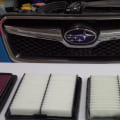MERV 11 is an effective air filter for controlling dust, pollen, dust mites and pet dander. It is suitable for most commercial buildings, residences, industrial workplaces and paint booths.
Air filters
with a MERV rating of 8 are capable of capturing larger particles, such as pet hair, dust and pollen. However, for pet owners, it is recommended to choose a filter with a higher MERV rating, such as 13, as it can trap smaller particles such as pet dander, bacteria and virus-carrying particles. The MERV 11 filter is better at capturing pet dander and sneezing bacteria than lower rated filters.It also provides additional protection against smoke, smog or car exhaust fumes that may seep in from the garage. According to ASHRAE, air filters with a MERV rating of 10 or higher are best for eliminating the smallest allergens found in the air, such as pet dander. For additional filtration of smoke, chemicals, odors and gases, consider combining HEPA filters with activated carbon filters. Fortunately, air filters can help remove pet dander from the air, improve air quality and reduce allergy symptoms. MERV stands for Minimum Efficiency Reporting Value and is basically a measure of the ability of the air filter to capture certain contaminants.
They are installed inside the ducts and use filters with a high level of MERV that easily trap pet dander. In addition, they are effective against human flu, the common cold and Streptococcus aureus. The higher the MERV rating, the more efficient the filter is at removing airborne particles, including pet dander. This means that items such as pet dander, smoke and some bacteria in the air are likely to pass through the MERV 8 filter. Strict building codes and increased foot traffic generally mean that commercial properties should opt for a filter with a higher MERV rating.
A furnace filter with a MERV greater than 8 will effectively remove dander from the air in your home, removing approximately 85% of large particles and 50% of small particles. These air filters have an active carbon layer that attracts odor particles and traps them inside the carbon material. However, if there are other problems with air quality or if you have pets in your home, you might consider improving them by combining them with an additional filter or using a furnace filter designed to minimize pet allergies. MERV stands for Minimum Efficiency Reporting Value and determines the efficiency of an air filter when it comes to capturing particles based on their size in microns. A big advantage of a more robust air filter is that it's a cheaper alternative to expensive air purifying machines. In conclusion, if you have pets in your home or if you're looking to improve your indoor air quality in general, then investing in an air filter with a high MERV rating is definitely worth considering.
A MERV 11 filter will capture pet dander effectively while also providing protection against other airborne contaminants.



